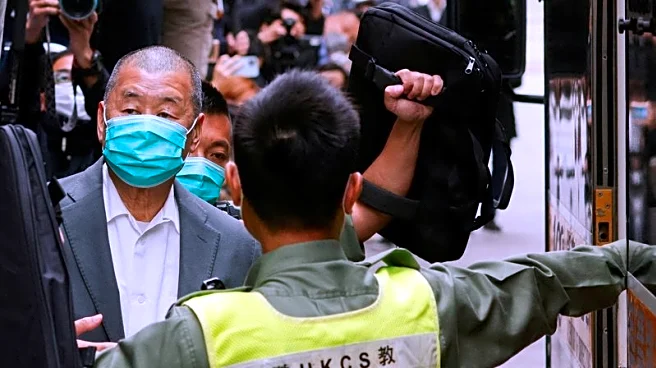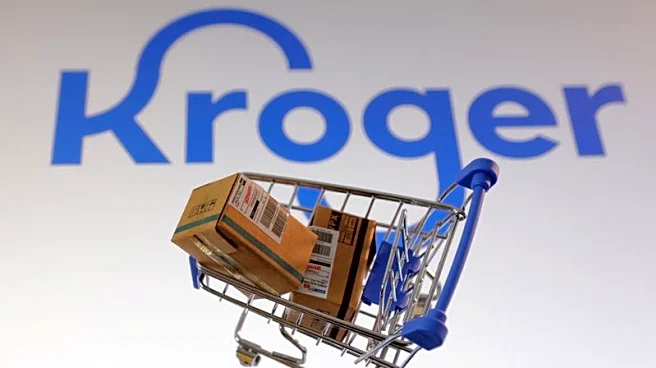Rapid Read • 9 min read
The Trump administration has imposed a 41% tariff on Syria, marking the highest tariff rate globally. This decision comes shortly after President Trump announced the lifting of longstanding U.S. sanctions on Syria, which had been in place for decades. Despite the limited trade between the U.S. and Syria, with Syria exporting $11.3 million worth of goods to the U.S. in 2023, the tariff is seen as a significant move. The tariff is part of a broader strategy by the Trump administration to address trade imbalances, although President Trump has not specifically commented on Syria's case. The country, which is in dire need of foreign investment for reconstruction after years of civil war, faces additional challenges due to these tariffs. Analysts suggest that while the tariff may not have a substantial direct economic impact due to the minimal trade, it sends a strong message about the U.S.'s stance on Syria's economic recovery.
AD
The imposition of such a high tariff on Syria could hinder the country's efforts to rebuild after a prolonged civil war. Syria's economy is already struggling, with significant infrastructure damage and ongoing sectarian violence. The tariff could deter potential foreign investors and complicate Syria's economic recovery. The decision also highlights the Trump administration's approach to international trade and foreign policy, emphasizing economic leverage over diplomatic engagement. This move could affect U.S. relations with other countries involved in Syria's reconstruction, such as Qatar and Saudi Arabia, who are providing aid and investment. The tariff underscores the complexities of international economic policies and their far-reaching implications on global diplomacy and regional stability.
Syria will likely continue to seek foreign investment and aid from countries like Qatar and Saudi Arabia to support its reconstruction efforts. The U.S. may face diplomatic challenges as it balances its economic policies with international relations, particularly with countries involved in Syria's recovery. The Trump administration's decision could prompt discussions among international stakeholders about the role of economic sanctions and tariffs in post-conflict recovery. Observers will be watching for any shifts in U.S. policy or further economic measures that could impact Syria and the broader Middle East region.
The tariff decision raises questions about the ethical implications of using economic measures as a tool for political influence. It also highlights the potential for economic policies to serve as a 'leash' on transitional governments, as seen in Syria's case. The broader impact on Syria's economy, already on the brink of collapse, could exacerbate humanitarian issues and prolong recovery efforts. This situation illustrates the delicate balance between economic policy and humanitarian considerations in international relations.
AD
More Stories You Might Enjoy












